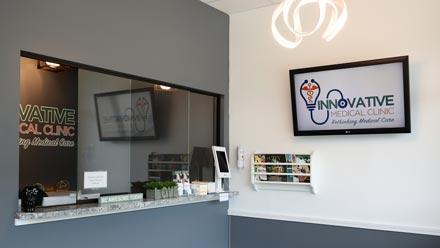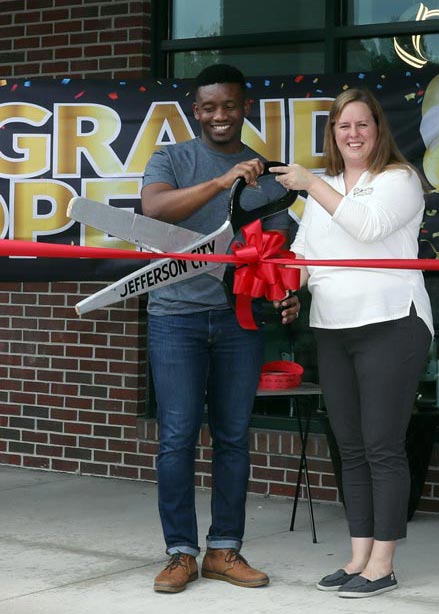
As a physician assistant in a hospital emergency room, Elochukwu “Elo” Osoego noted that most of the patients seen there — 80% to 85%, he said — did not need to be in the ER. Often, they needed services not available at urgent care and didn’t have time to wait until they could get an appointment with their primary care physician.
He and his wife, Dara Osoego, a family nurse practitioner, also saw the uncertainty of medical care costs as a major concern because it kept many people from getting needed treatment, even people with insurance.

With a desire to bridge the gap between urgent care and the ER and to offer affordable medical care with transparent pricing, they opened Innovative Medical Clinic on July 1, 2022, in Jefferson City, Missouri.
“One thing that is really unique about us is our ability to reach some of the people that maybe otherwise wouldn’t get quality health care,” said Dara Osoego.
Those people include ones who don’t have health insurance and therefore don’t seek treatment. It also includes people who don’t want to go to the ER, which before Innovative Medical Clinic opened might have been their only option for certain conditions, because they either don’t have insurance or have a high deductible.
“Getting good quality health care to people that otherwise would maybe either postpone or just not seek the care at all … that’s a big thing for us,” Dara Osoego said.
“Very affordable care, as well,” added Elo Osoego.
Prices are listed on their website and on a TV monitor in the waiting room.
“Patients know even before they walk in our doors what kind of bill to expect,” Dara Osoego said.
Those doors were able to open last July thanks in part to help from the Missouri Small Business Development Center (SBDC).

“We were very, very fortunate to meet Lauren Carter,” Elo Osoego said. “Without her, I don’t think that the clinic would have come into fruition.”
Carter is director of the Missouri SBDC at Lincoln University in Jefferson City.
“We kind of stumbled around quite a bit initially when we were doing the research,” Elo Osoego said.
Then Dara Osoego learned about the SBDC.
When they first met with Carter in October 2021, “it was like a big veil lifted,” Elo Osoego said. “There were so many things we hadn’t even thought about and things that we were wondering about.”
Carter’s positive reaction to their idea for Innovative Medical Clinic gave them a boost of confidence in their plan.
Carter said that Innovative Medical Clinic was needed in the community.
“We have hospitals, we have urgent care, but there’s nothing for the type of person who doesn’t have insurance or has insurance but can’t really afford to use it,” Carter said.
“They did everything possible in the beginning to make sure they can offer services at the lowest price possible,” Carter said. “They did so much research,” including looking into automation and building partnerships, “so they can pass savings along to their patients.”
Dara Osoego said that Carter was impressed by them being “several steps ahead of the game in comparison to some of the other clients she’s dealt with,” which reassured them that they weren’t proceeding haphazardly but were going in the right direction, giving them another boost of confidence.
Ultimately, Carter helped the couple fine-tune their business plan; connected them with a grant opportunity, which they were awarded; and facilitated them securing a loan by introducing them to a pro-small business banker.
Some of the services the clinic offers that set it apart from urgent care include labs, IV fluids and, through Advanced Radiology just a couple of doors down, imaging.
“We’ve formed a great working relationship with Advanced Radiology, which has allowed us the opportunity to utilize their services so we can offer X-ray, CT, MRI, ultrasound and more. Therefore, we can provide care to more types of — and more complex — patients,” Dara Osoego said.
“We’ve also started taking on family medicine type patients, patients who are needing primary care type visits for annual labs and things like that,” Elo Osoego said.
The clinic currently serves seven to 15 patients a day. The goal is to have that number up to 20 by the end of the first year of business, and up to 30 between the second and third years.
By their third year, they would also like to open clinics in other locations, with rural areas being a particular focus.
In the meantime, adding providers to their staff is a priority so that they can help more people.
“You don’t hear too many stories where the drive [to start a business] is based off of community need,” Carter said. “They care about people so much. They couldn’t take seeing people suffer, so they decided to do something about it.”
Writer: Victoria Stokes